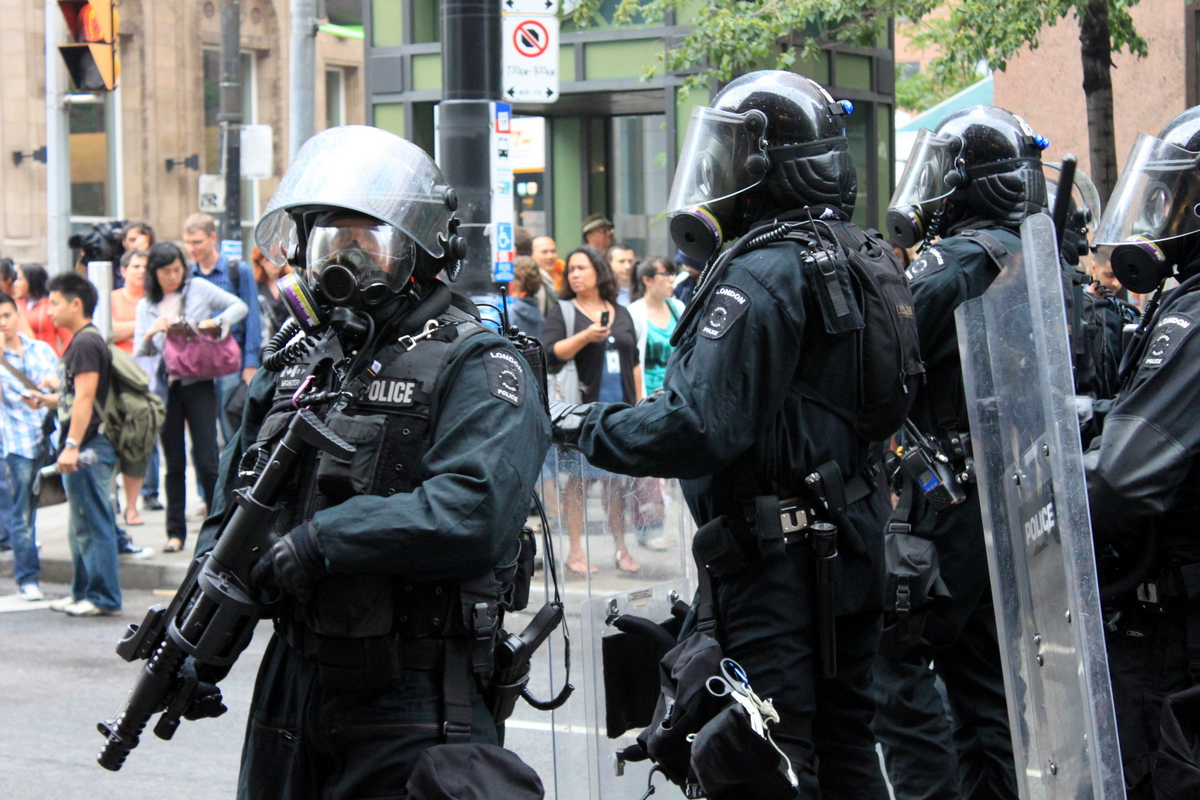Like this article? rabble is reader-supported journalism. Chip in to keep stories like these coming.
We need to talk about bad cops.
I don’t mean the ones who kill. We need to talk about them too, but thanks to the efforts of activists, especially Black Lives Matter, a conversation is emerging about holding the worst of the worst accountable.
I also don’t mean the ones who beat, sexually assault or otherwise harm individuals. We need to talk about them too, but there’s a different, insidious group of police that we also need to talk about.
We need a public conversation about the cops whose actions don’t normally lead to an investigation. Those officers who are nameless, faceless and whose actions call into question the core of policing in Canada. Those officers who emerge, from time to time, in news reports as part of a cohort of supporting players in clandestine horror stories.
On July 29, the B.C. Supreme Court found that the RCMP had entrapped Amanda Korody and John Nuttall. The two were facing terrorism charges for trying to set off a bomb on July 1, 2013. In the judge’s decision, it was stated that up to 240 RCMP were involved in the elaborate scheme to cajole these two into a terrorist act.
Korody and Nuttall were poor, struggling and vulnerable. Apparently, they were perfect targets for a police department that was, “clearly overzealous and acted on the assumption that there were no limits to what was acceptable when investigating terrorism,” according to Justice Bruce of the B.C. Supreme Court.
Notably, they were first found guilty, before the entrapment case was brought before the superior court.
In an era where austerity is the guiding principle in managing the public sector, it’s amazing that up to 240 publicly paid individuals could be used to try and entrap two vulnerable individuals, isn’t it? If there isn’t enough federal money to ensure that federal bureaucrats are paid, or if there isn’t enough money to renew the Canada Health Accord, how is it that we can pay for the state to so brutally interact with two vulnerable people?
The officers caught up in this scheme were just following orders, surely. But, at what point does society reject this as a justification? How will the RCMP be held accountable for such a spectacular waste of resources?
This is bad policing, though it’s not at all uncommon. And, while the mundanity of up to 240 police orchestrating a terror plot is less explosive than other high profile cases of police brutality, this story has similar results: lives ruined and families forced to pay exorbitant legal fees to try and achieve justice.
Do Canadians have an idea just how many bad cops there really are? Or how common entrapment is? Monia Mazigh reminds us: “The unusual factor here isn’t that entrapment was used, but the decision of the judge to accept it as one.”
She cites the case of Chiheb Esseghaier, convicted for having plotted to blow up a Via Rail train. In this case, police informants played critical roles too. The big difference is that Esseghaier is serving life in jail.
Ahmed Abassi was also caught up in that case: while on vacation in Tunisia, the former Laval University student’s visa was cancelled by Canadian authorities. With no notice and no reasons given, Abassi was convinced to come back to Canada through the United States by a friend and businessman, who said he’d help him get a Canadian visa from the U.S.
His friend was actually an undercover officer who worked very hard to convince Abassi to commit a terrorist act.
Eventually, the terror charges were dropped and Abassi was instead found guilty of immigration fraud. He never was able to finish his studies at Laval.
Canadian law enforcement was never held to account for their involvement in the case against Abassi.
In the B.C. case, the Crown is planning to appeal Justice Bruce’s decision. Apparently, the overwhelming evidence that the police actions were gross doesn’t matter. The fact that the police coached Korody and Nuttall through making their bomb doesn’t matter. Certainly, the public costs to this monkey trial don’t matter.
Terrorism these days is hot. So it’s predictable that the most outrageous cases of bad cops doing bad things would surface here, but it’s only one small part of the problem. From all officers implicated by systemic racism in policing to more mundane instances of police failures, Canadians need to rein in their police.
Part of the solution lies in reversing the budgetary heyday that policing has enjoyed across Canada. The Federation of Canadian Municipalities estimates that police budgets have climbed by $2.5 billion over 10 years, a figure that is controlled for inflation. The FCM warns that this money is eating into other emergency preparedness initiatives that municipalities need to fund.
As crime rates continue to fall, and weather-related disasters wreak havoc on communities across Canada, politicians should heed the FCM’s warnings.
Accountability is impossible when police operate with impunity. When there is no accountability, it actually doesn’t matter how many members within law enforcement are “good cops.”
The actions of the worst and the apparent ambivalence of the majority means that the actions of the good ones can never outweigh the actions of the bad.
Like this article? rabble is reader-supported journalism. Chip in to keep stories like these coming.
Image: Flickr/Chris Huggins




